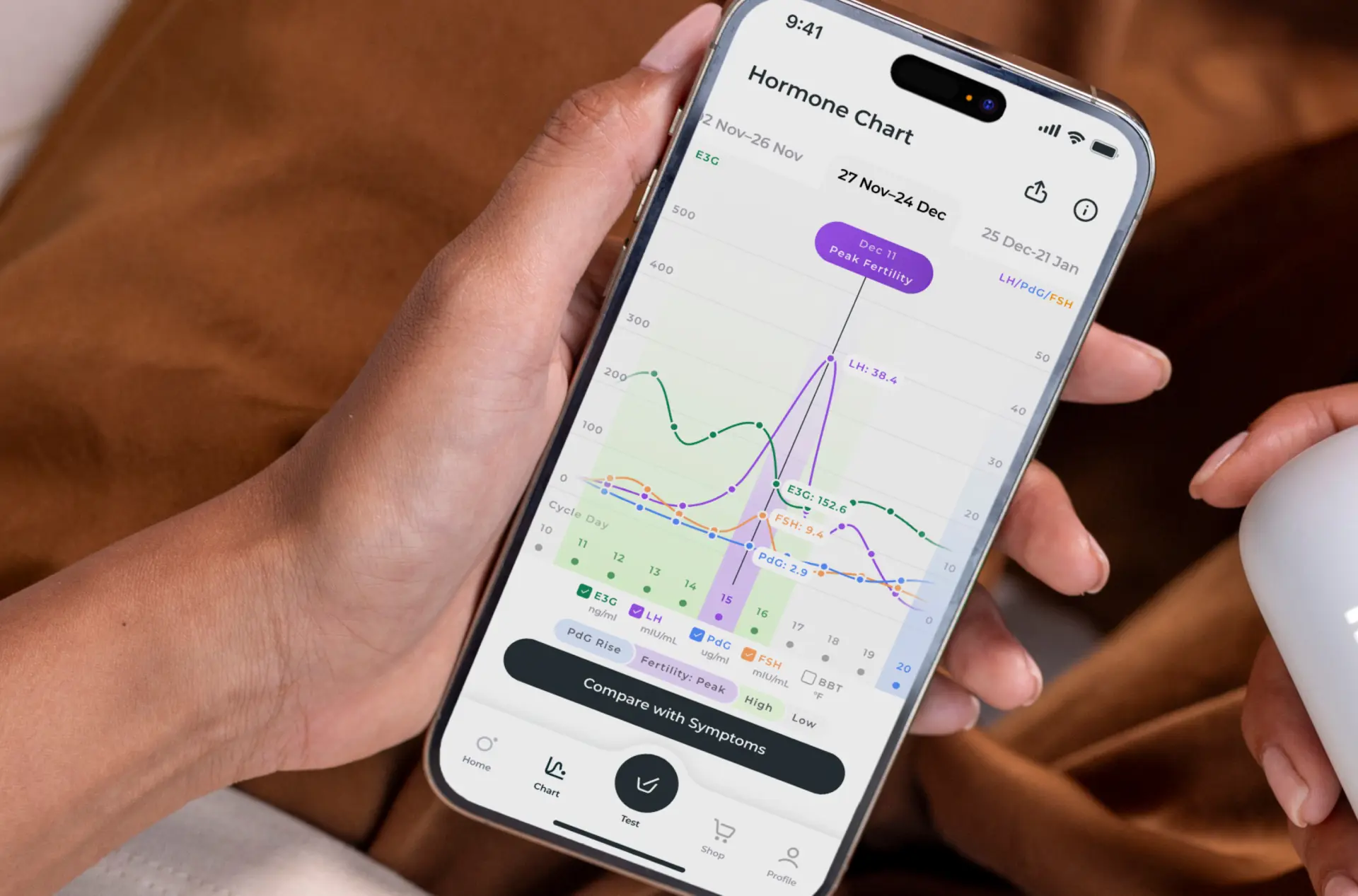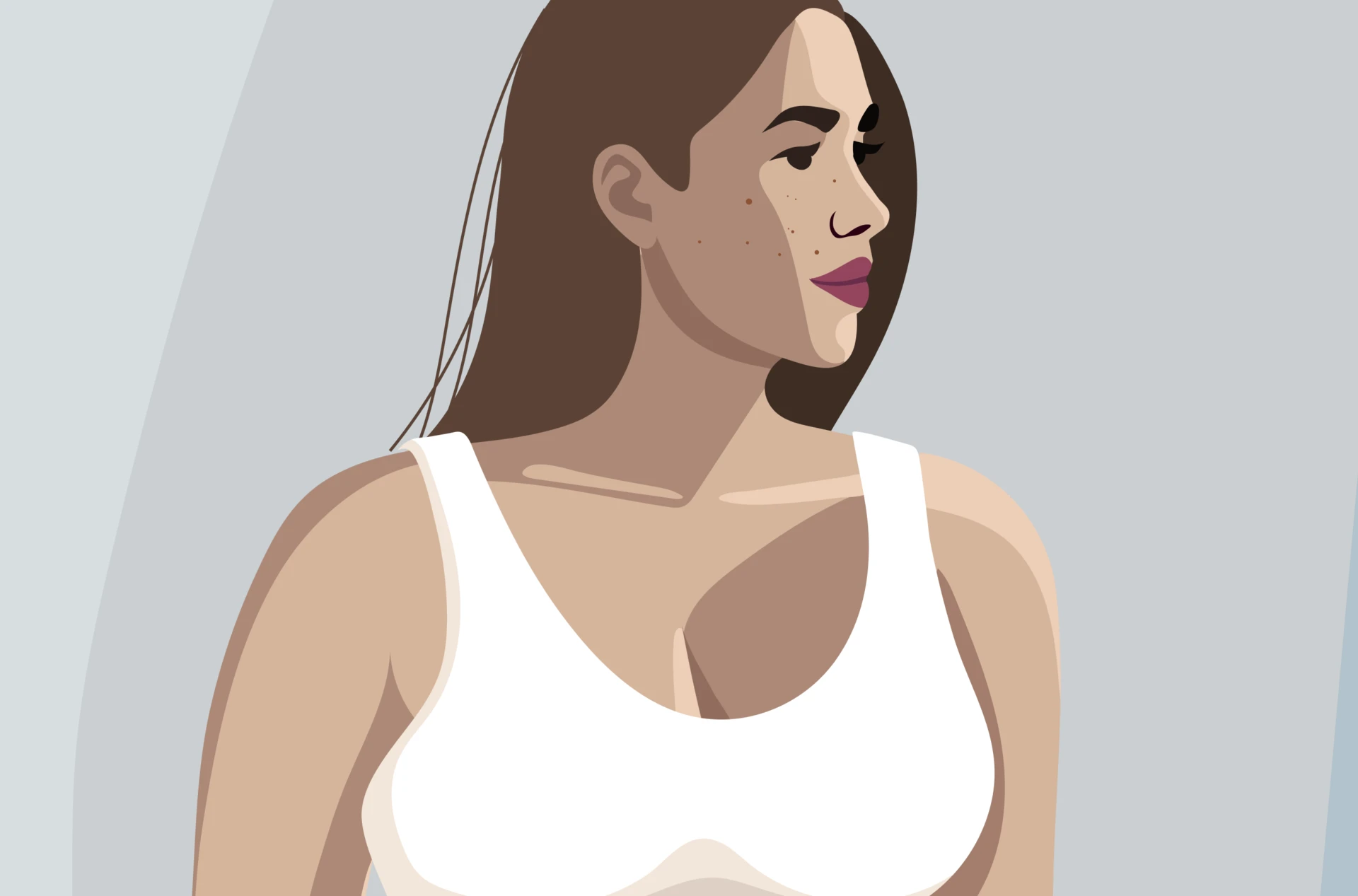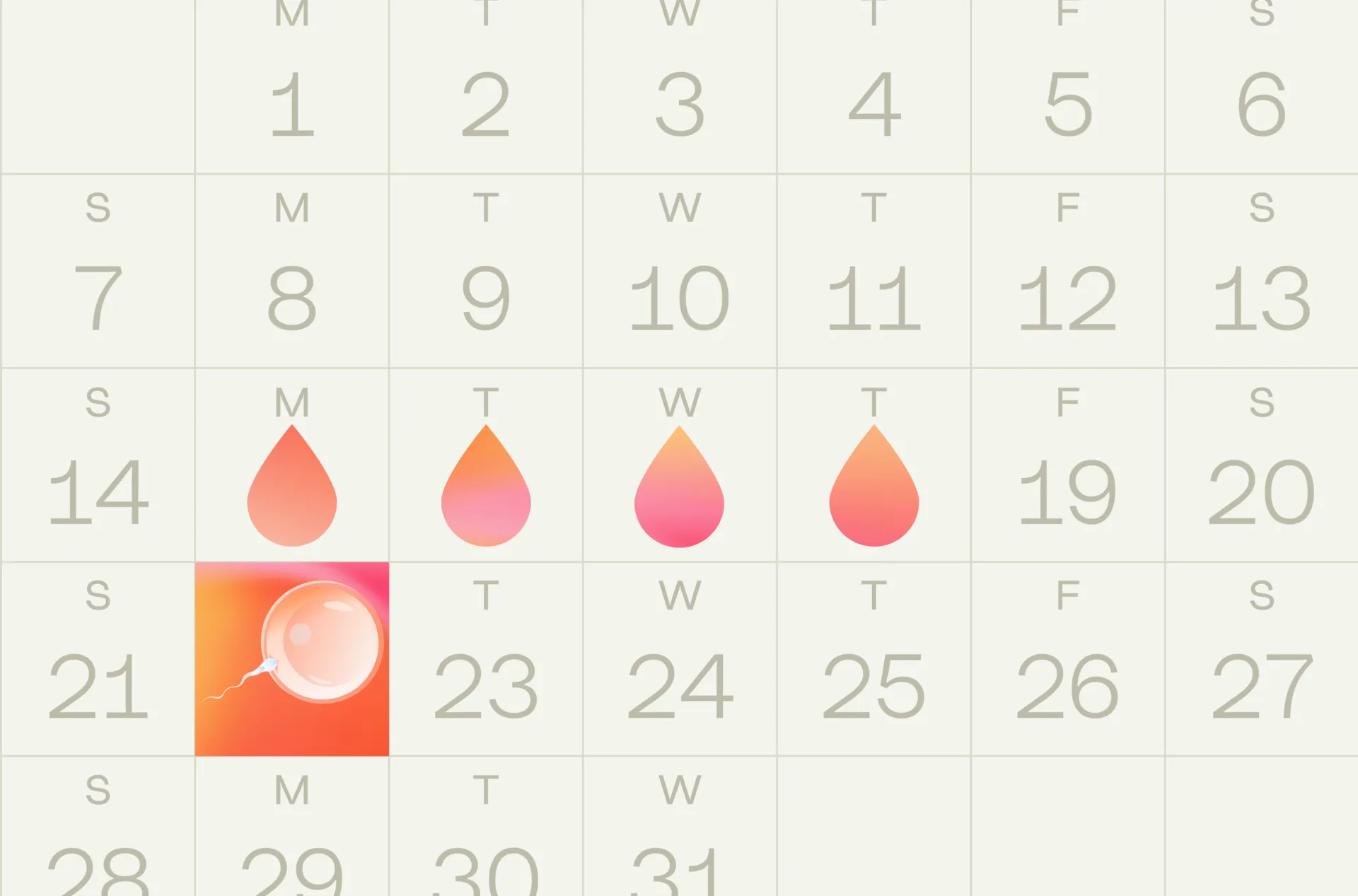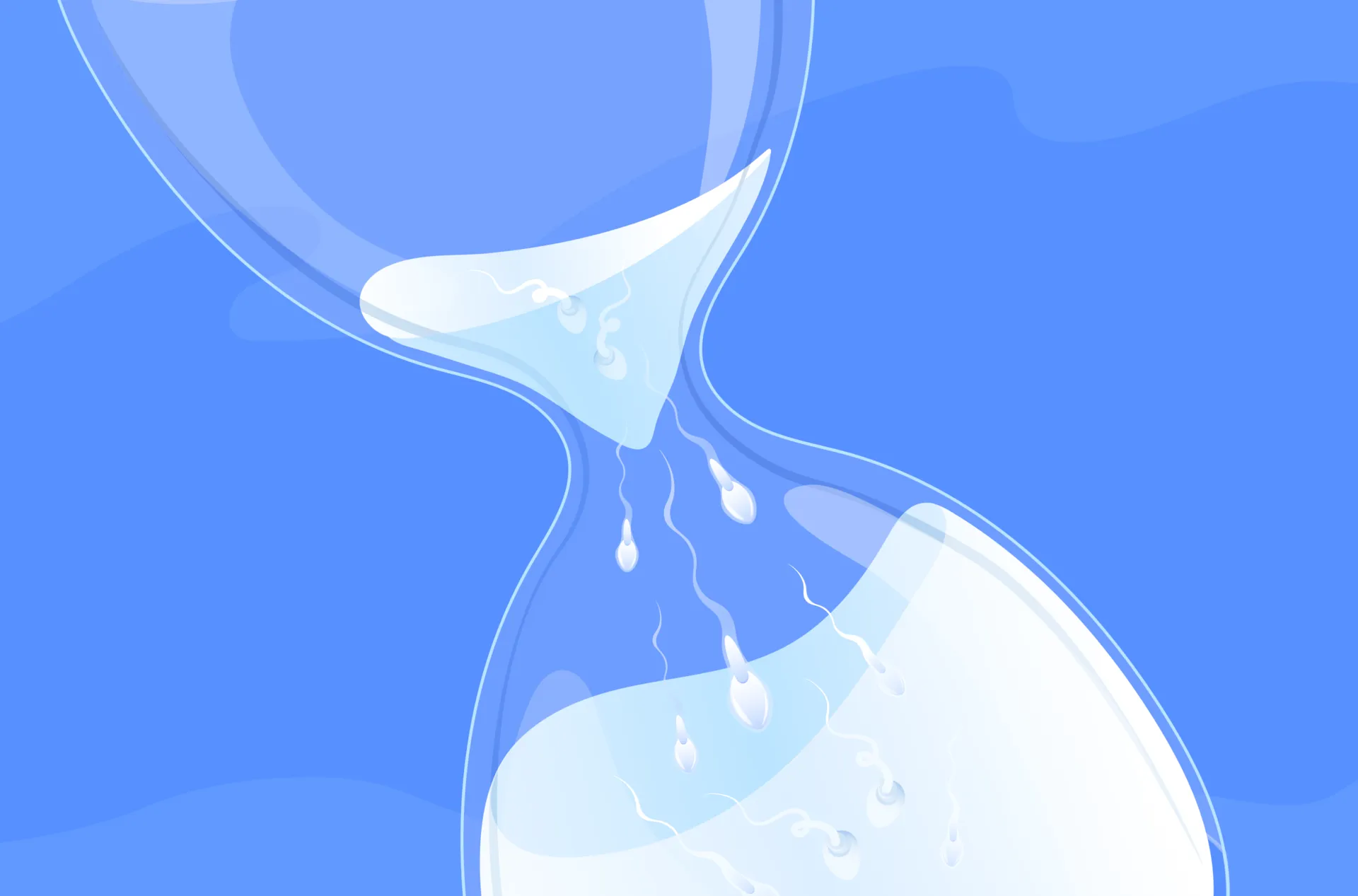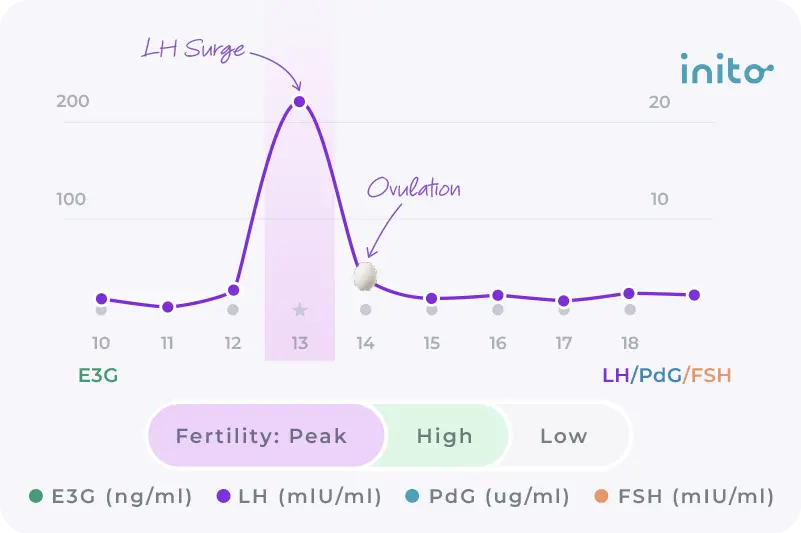Content table
Feeling defeated by symptoms of endometriosis? You’re far from alone in your fight.
Over 190 million women worldwide suffer from this condition. The presence of endometrial tissue beyond the uterus can cause many unfavorable symptoms.
Perhaps you’ve experienced pain, abnormal periods, tummy issues, or even fertility challenges. But there’s one symptom associated with endometriosis that’s highly misunderstood. And that, my friend, is weight gain.
So if you’re one of the many women wondering: Can endometriosis cause weight gain? Then follow along for an in-depth look at endometriosis weight gain and what you can do about it.
Key Takeaways
- Endometriosis can cause many uncomfortable symptoms. Some include GI issues, endo belly, hormonal changes, chronic pain, and emotional distress.
- Endometriosis is not a direct cause of weight gain. But due to the symptoms it causes, women with the condition may put on extra weight. It all depends on each individual and how their body reacts to the disease.
- If you have endometriosis, there are some measures you can take to manage your weight. Adopting a low FODMAP and anti-inflammatory diet can help. So, you can exercise regularly and manage your stress levels.
- Left untreated, endometriosis can cause fertility challenges. Consult your doctor for further recommendations on treatment and symptom management.
Can Endometriosis Cause Weight Gain?
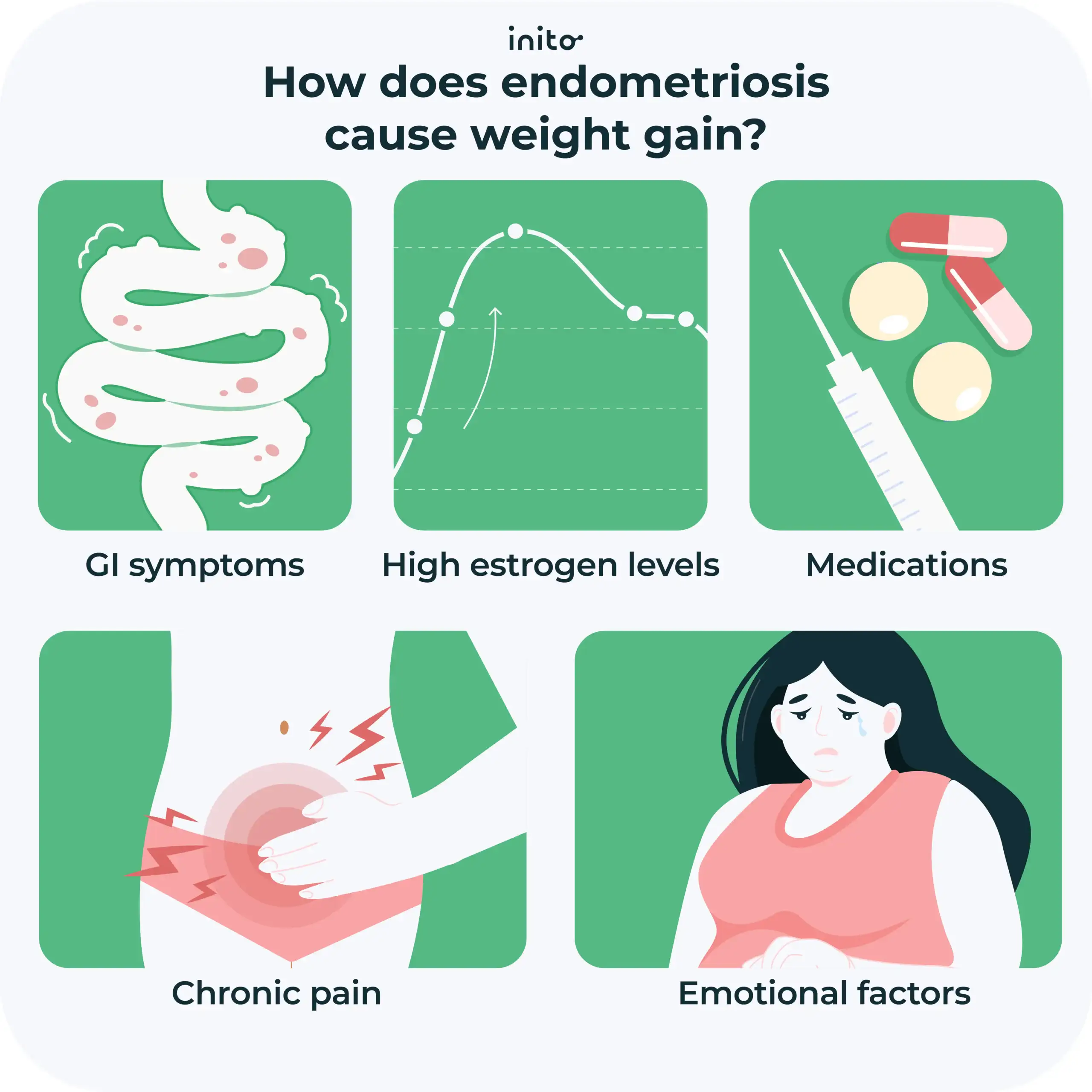
On its own, endometriosis does not directly cause weight gain.
That said, there are a few reasons women with endometriosis could gain weight.
Let’s unpack each of these factors to see how they’re connected to potential weight fluctuations.
Gastrointestinal (GI) symptoms
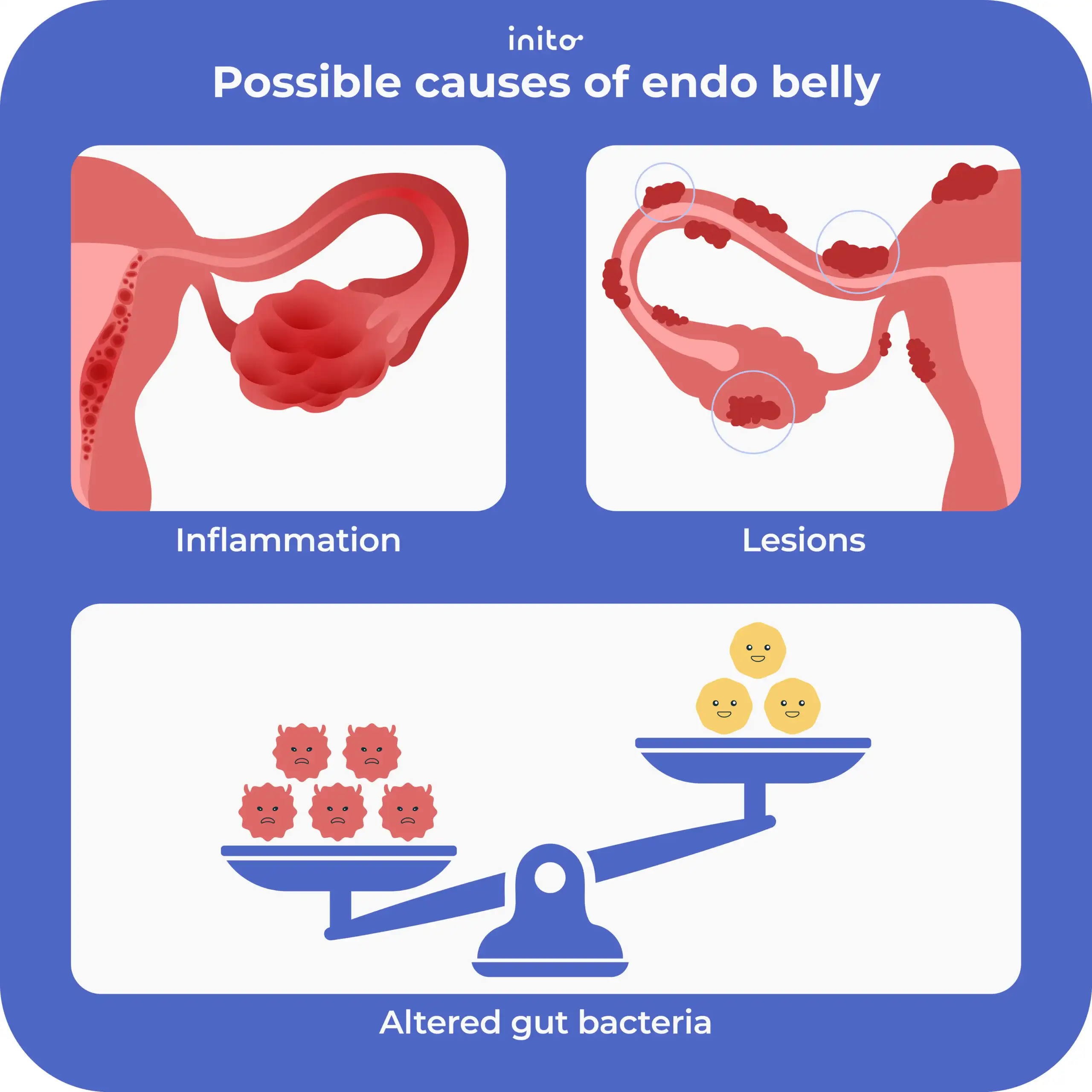
Women struggling with endometriosis often report GI struggles as a major symptom. Gastrointestinal issues can look like constipation, diarrhea, nausea, and bloating.
Endometriosis causes extra fluid retention in the abdominal area as well as bloating. Because of this, many sufferers experience what’s called “endo belly.”
Yes, many women without endometriosis have bloating during their menstrual cycle too. But endo belly is much more pronounced and painful than this typical bloating.
According to one study, 96% of women with endometriosis suffer from abdominal bloating. Meanwhile, just 64% of those without endometriosis have bloating.
Scientists aren’t entirely sure about the root cause of this extreme bloating. But here are some likely culprits:
- Inflammation
- Altered bacteria in the gut (dysbiosis)
- Endometrial lesions
The discomfort of endo belly and bloating also seems to worsen around the time of your period.
So how do these GI symptoms specifically relate to weight gain?
Well, it actually depends on the specific woman. Some patients with endometriosis may experience an increase in weight. This could be from fluid retention. It could also be due to dietary or lifestyle choices made in response to GI symptoms.
On the other hand, others may actually notice a poor appetite and weight loss from all these GI issues. It really depends on the unique factors of each individual.
Varying hormone levels
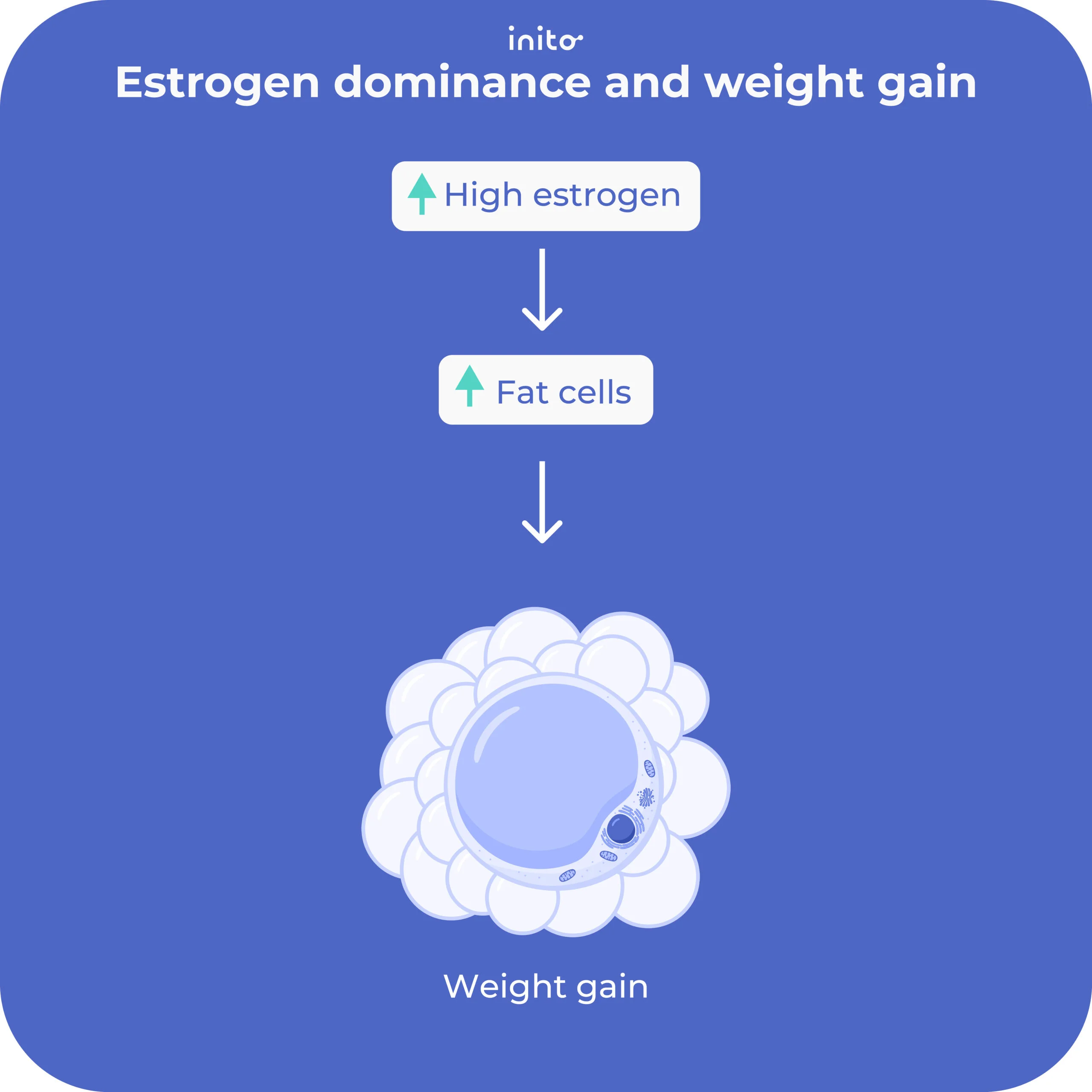
Hormonal fluctuations also factor into changes in weight. Specifically, endometriosis can cause higher-than-normal estrogen levels.
Estrogen is considered the sex hormone. However, it also plays a vital role in other bodily functions. Some of these include food intake, metabolism, fat storage, and insulin insensitivity.
So when endometriosis causes an imbalance of estrogen, it can affect these vital processes. The end result? Weight gain.
Intake of medication like progestins
One of the leading treatments for symptoms of endometriosis is birth control. While on birth control, bloating and water retention are common side effects. (This is especially the case for progestin-only pills). So it may come as no surprise then that this could lead to weight gain.
Chronic pain
Another roundabout cause of weight gain for women with endometriosis is chronic pain.
Think about it. Those who experience pain and discomfort day after day are less likely to exercise. So indirectly, this decreased activity can cause weight gain.
Here’s a firsthand look at how this chronic pain impacted one woman’s daily habits and weight:
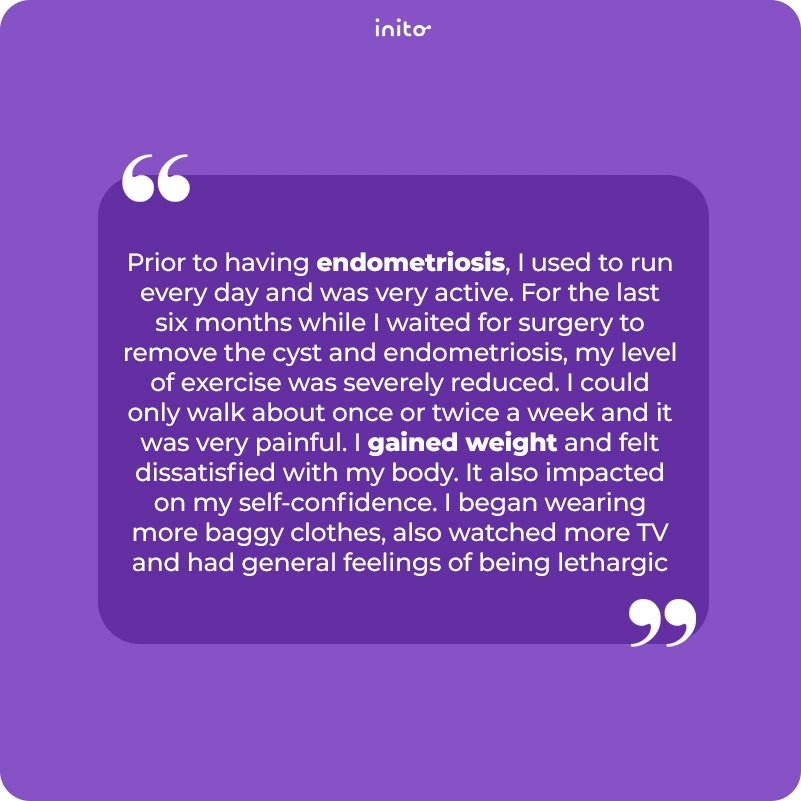
Emotional factors
A final consideration for weight gain is the emotional toll it takes on a person. This condition may cause women to lose sleep, stress-eat, and avoid exercise. All of these can lead to putting on extra pounds.
One woman battling endometriosis describes the emotional toll:
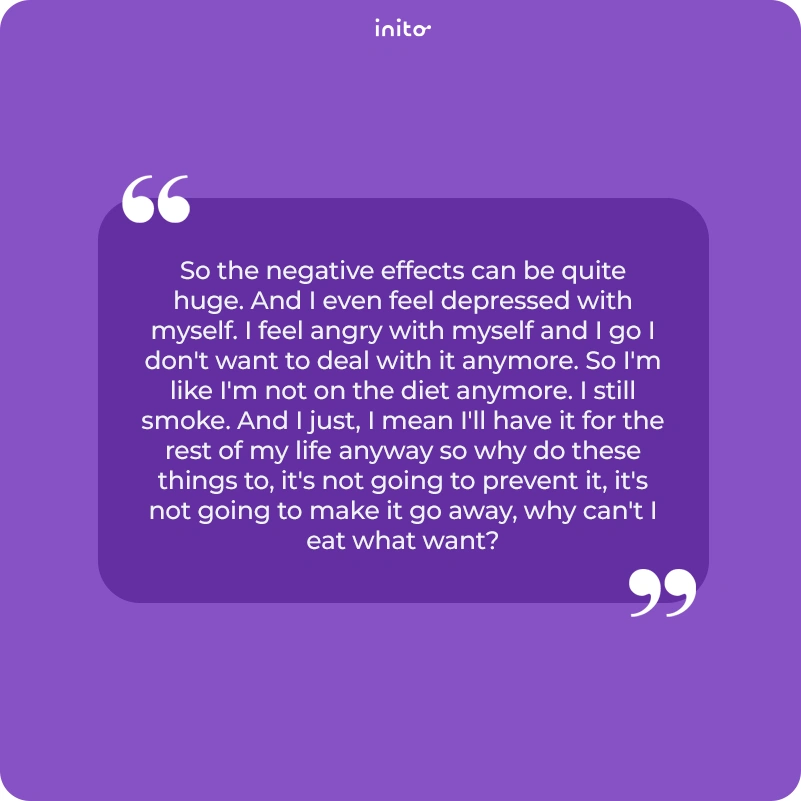
What’s more, chronic pain could spiral into experiencing symptoms of depression. And a common side effect of antidepressants is weight gain.
If you think your change in weight is related to any of the factors we’ve discussed, don’t despair. You can make some changes that will give you more control over your weight. More on this in the next section.
How to Manage Your Weight With Endometriosis?
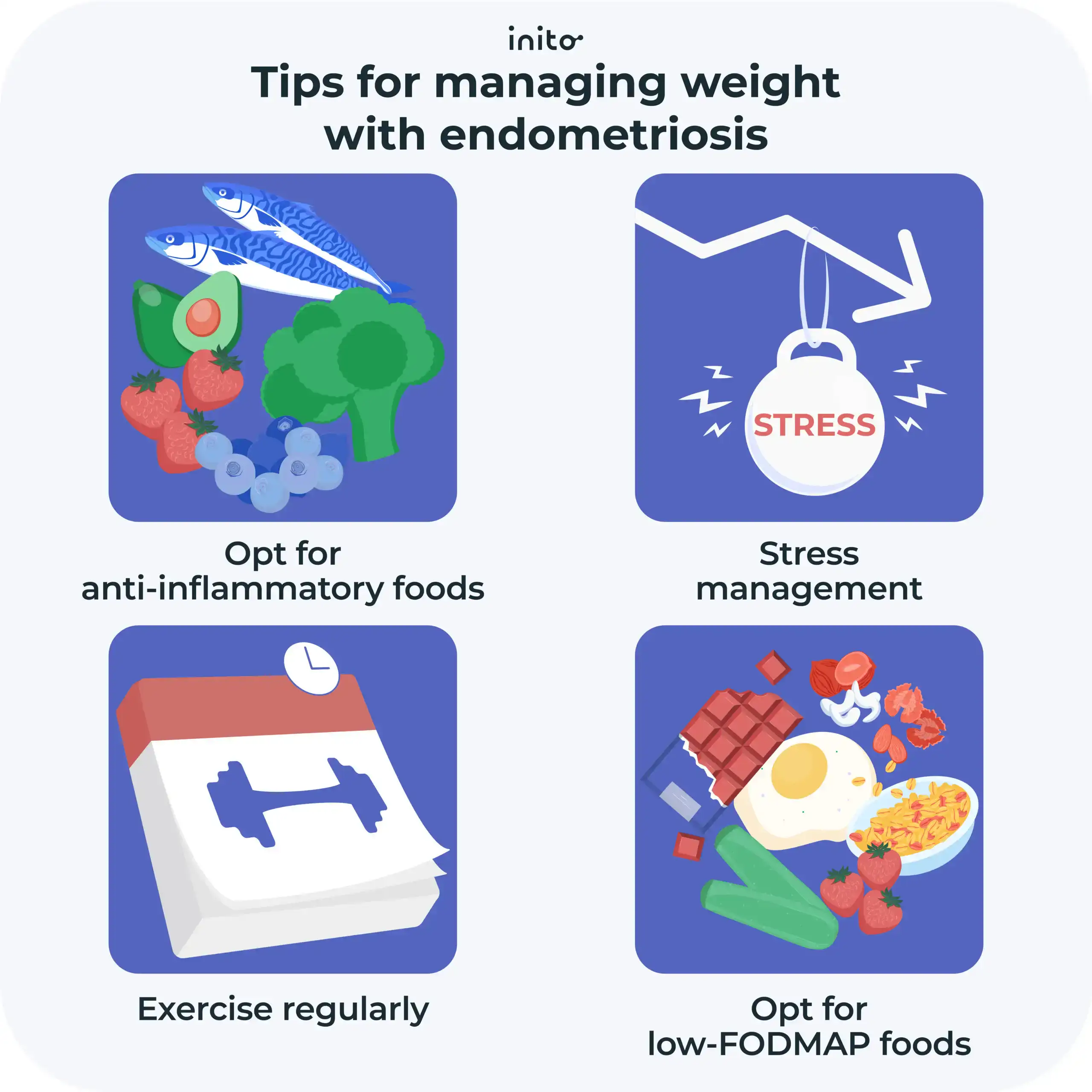
Having endometriosis can certainly make weight management more challenging. But there are a few factors within your control.
Follow these tips for reclaiming some control over your weight and overall health:
Opt for an anti-inflammatory and low FODMAP diet
Knowing which foods to consume and avoid is a game-changer for endometriosis. Remember, inflammation and gut imbalance are at the root of all these GI issues. By consuming foods that don’t worsen these symptoms, you’ll have a better handle on your weight.
Here are some dietary choices to consider:
Anti-inflammatory foods
Avoid foods that have sugar and gluten. Instead, consume foods that are plant-based or that have an anti-inflammatory effect. Eating these types of foods may provide relief for common symptoms of endometriosis. You could see reduced pain or even the resolution of amenorrhea.
Low FODMAP foods
Many endo belly symptoms are similar to those of Irritable Bowel Syndrome (IBS). Typically, IBS sufferers see relief when switching to a low FODMAP diet. So this could be helpful for women with endometriosis too.
FODMAP refers to Fermentable Oligosaccharides, Disaccharides, Monosaccharides, And Polyols. These are short-chain carbohydrates that are not properly absorbed by the small intestine, resulting in digestive issues.
To see which foods are causing distress, try eliminating certain foods from your diet. Then, slowly reintroduce each one to see if it’s upsetting your system. This allows you to continue eating the ones that are a non-issue while avoiding the ones that are.
And don’t worry, we’ve taken most of the guesswork out for you! Below, we’ve simplified which foods you should eat versus which ones to stay clear of.
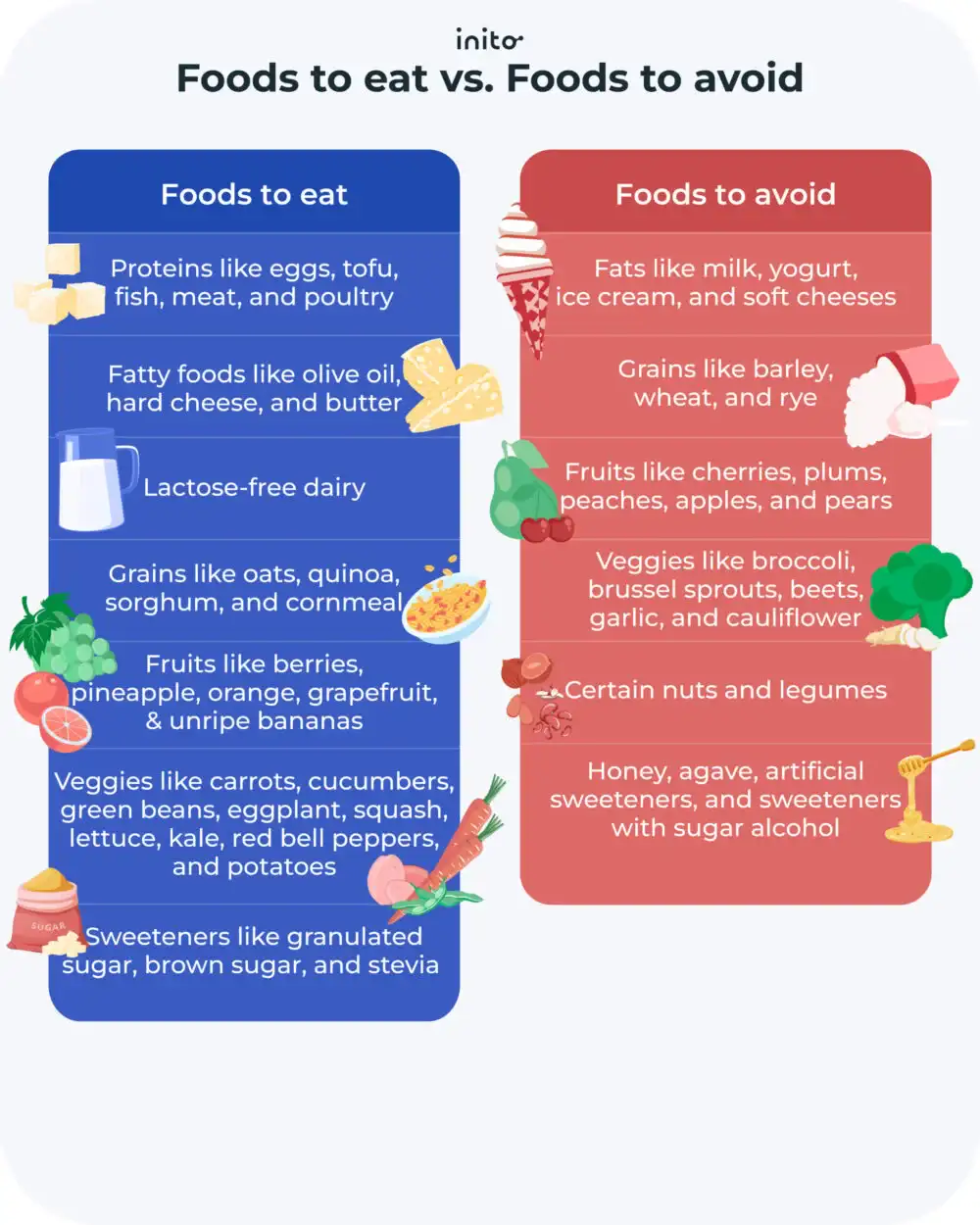
Keep in mind that the recommendations above may provide some relief. But be sure to consult your doctor before making any changes to your diet. This is especially important if you have other health conditions or take medications.
Manage your stress and pain
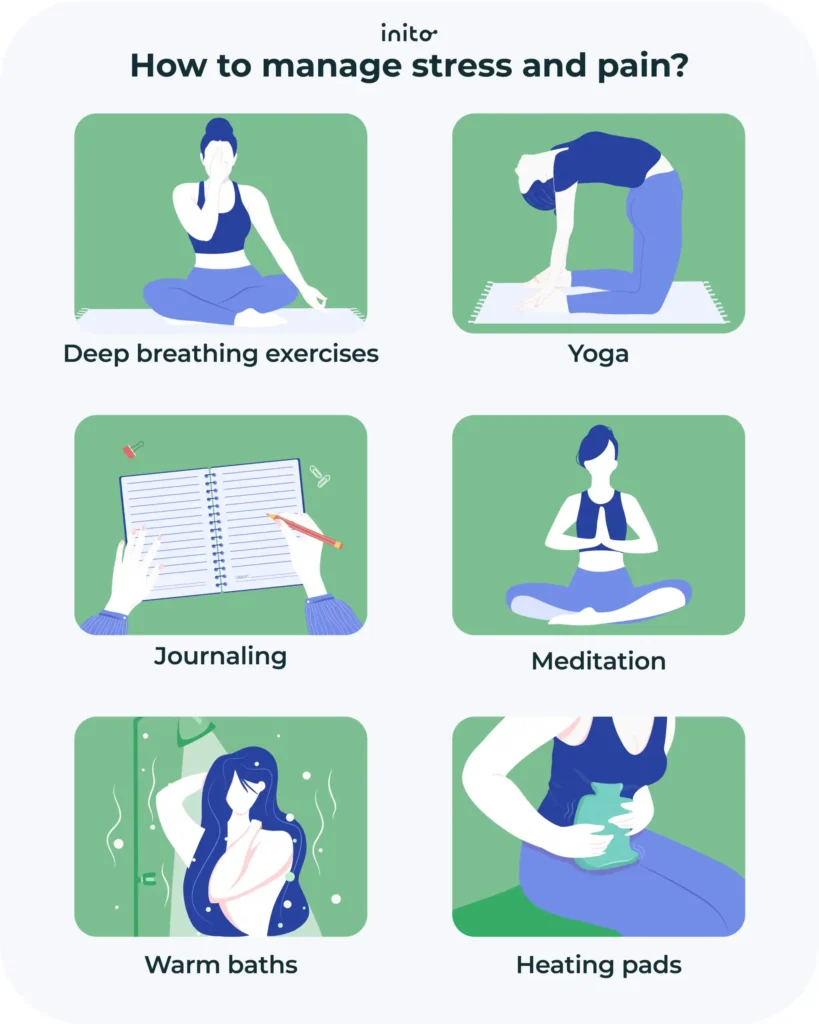
Engaging in practices that provide pain relief and that lower stress are beneficial. Here are a few examples:
- Practice deep breathing
- Include yoga in your routine
- Journal your experiences
- Meditate for at least 10 minutes
- Take warm baths
- Use heating pads for pain relief
Tried some of these and still need additional relief? Discuss the potential use of medication or painkillers with your HCP.
Move your body
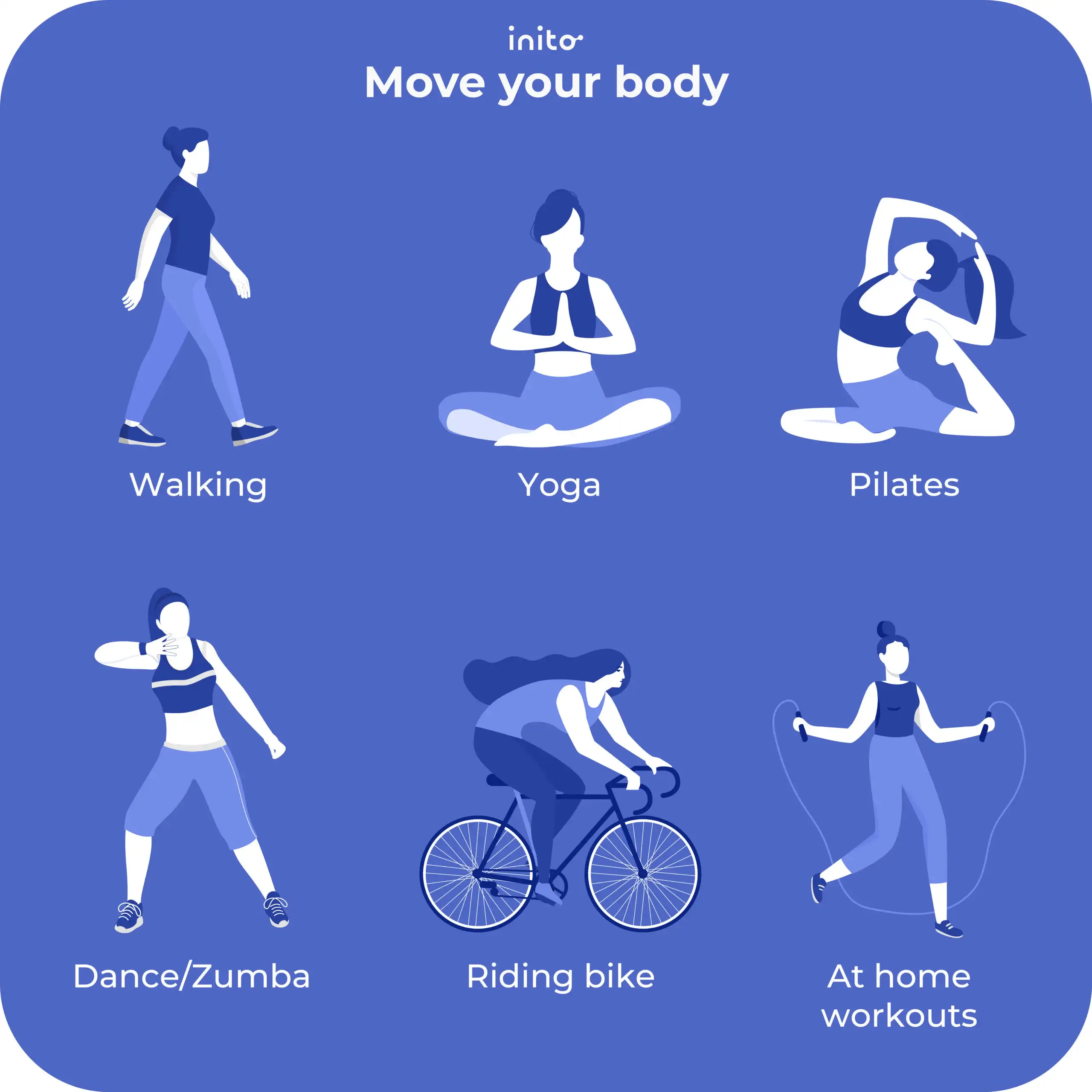
Pain caused by symptoms of endometriosis may make you want to avoid exercise. But here’s the catch-22. Exercise and movement may actually help with pain management.
It’s recommended that adults get 2.5 hours of moderate exercise each week. This comes out to about 30 minutes per day, 5 days a week. So try to find an activity that you enjoy and that doesn’t make your pain worse. Great options include swimming, walking, and yoga.
Will endometriosis or weight gain affect my fertility?
If you’re TTC, you may be wondering if endometriosis and its symptoms will affect your chances of conception.
Endometriosis does play a role in getting pregnant and staying pregnant. Thankfully, there are many treatment options available nowadays. Check out the article below to get the whole scoop on conceiving with endometriosis.
Read more: Getting Pregnant With Endometriosis

FAQs
Endometriosis will not directly cause you to gain weight. But common symptoms of the condition could lead to weight fluctuations. These include GI issues, hormone variations, pain, and emotional struggles.
Getting treatment for your endometriosis can help in relieving many uncomfortable symptoms. After treatment, you may experience positive lifestyle changes and improved emotional well-being. Indirectly, these factors could help in weight management.
But keep in mind, endometriosis is a lifelong condition. So you could still have symptoms flare up even after having surgery.
Yes, endometriosis can cause a bloated, bulging belly. This is notoriously referred to as “endo belly.” Mainly, it’s from retaining extra fluids and extreme bloating. This bloated feeling is more extreme than you would experience normally in your cycle.
It really depends on your unique situation. Some symptoms of endometriosis can make losing weight more challenging. But there are a few things you can do to help. Consume an endometriosis-friendly diet and exercise for 30 minutes a day. And as best you can, try to reduce your stress levels.
Yes, having endometriosis can make it more difficult to lose weight for a few reasons. First, those who have more moderate to severe endometriosis tend to have more intense chronic pain and this can make it uncomfortable to exercise. On top of that, many women with endometriosis experience extra bloating, gastrointestinal issues, fatigue, and mental health struggles. For some, this may lead to dietary habits that don’t support weight loss. And endometriosis also impacts hormone levels–especially estrogen levels, which play a role in fat storage, metabolism, and food intake. So on its own, endometriosis doesn’t cause weight gain directly, but it can certainly be tied to it.
The exact amount of weight you may gain as a response to having endometriosis depends on your unique health profile. While some women with endometriosis may be more susceptible to gaining weight, others may actually lose weight. If you’re concerned about weight gain as an endometriosis warrior, talk to your healthcare provider or a dietician. They can help give you more insights unique to your specific medical circumstances.
Yes, endometriosis can cause your belly to look bigger. This is usually referred to as “endo belly,” and it’s from abdominal bloating (which 96% of endometriosis warriors experience). It’s thought to be caused by inflammation, changes to your gut bacteria, and endometrial lesions.
Stage 4 endometriosis is when you have severe endometriosis. This can be diagnosed through an examination by your healthcare provider. With stage 4 endometriosis, it’s likely that the abnormal tissue has reached into other pelvic organs like your uterus, ovaries, or even your bladder. You also likely have widespread scar tissue and multiple large ovarian cysts. Your pain is probably more severe as well.
You can certainly make a few lifestyle changes to try to flatten your endo belly and reduce your bloating and endo symptoms. The best way to start is to adopt an anti-inflammatory and low FODMAP diet. Foods that fall within these two categories are less likely to aggravate your symptoms and they may help improve your inflammation and gut balance. Managing your pain and stress and getting exercise as best as you can may help with your endo belly as well.
There may be no way to totally flatten your endo belly for good, but there are definitely a few steps you can take to reduce your endo belly and its associated symptoms. Some women notice improvements to their endo belly when they make lifestyle and dietary changes (like adopting a low FODMAP and anti-inflammatory diet). Others may notice relief after trying certain medications or potentially even having a surgery. It really depends on your unique experience of endometriosis and your overall health and lifestyle.
Yes, in some cases an ultrasound is used to support with diagnosing endometriosis as it can help give a view of the pelvic region where cysts and scar tissue may live. Other imaging methods used for endometriosis include MRI and laparoscopy.
Endometriosis is not considered a disability but rather a chronic disease. That said, for women who have moderate to severe endometriosis, some of the associated symptoms (like severe pain) can be debilitating to a degree.
Was this article helpful?
- Abdominal Bloating: An Under-recognized Endometriosis Symptom – ScienceDirect
- Endo Belly: What Is It and Why Does It Happen?—A Narrative Review – PMC
- Estrogen Receptors and Endometriosis – PMC
- Impact of endometriosis on women’s lives: a qualitative study | BMC Women’s Health
- Endometriosis in patients with irritable bowel syndrome: Specific symptomatic and demographic profile, and response to the low FODMAP diet – Moore – 2017 – Australian and New Zealand Journal of Obstetrics and Gynaecology
- Global Study Shows the Experience of Endometriosis is Rooted in Genetics – University of Oxford News





